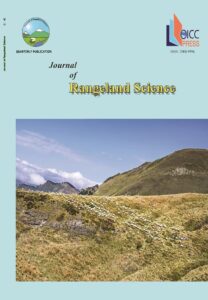Investigating the Effects of Number and Frequency of Incisions on Production and Survival of Astragalus keyserlingii
Authors
- Seyyed Morteza Abtahi * 1, 2
- Karim Bagherzadeh 3, 4
- Ehsan Zandi Esfahan 5
Abstract
Tragacanth Gum is one of the most important medicinal and industrial products
of rangelands and is obtained from the incision of gum tragacanth-producing Astragalus
including Astragalus keyserlingii. The conservation of Astragalus species in rangelands
has a special place in terms of economic profit and soil conservation. The increase in price
of gum tragacanth in recent years and more attention of beneficiaries to the extraction of
this material from the existing Astragalus in the rangelands could cause the destruction of
Astragalus species producing gum tragacanth. This research was aimed to provide a
scientific method for the exploitation of gum tragacanth as well as the conservation this
species. The study was conducted in Tiran, Isfahan province, Iran using a split plot design
in the layout of a completely randomized blocks design with three replications. Each
replication included 30 shrubs that were exploited for the first time. Treatments included
the number of incisions and harvests. The traits were gum tragacanths production, the plant
mortality percent and canopy cover percent. According to the obtained results, the number
of harvests had a negative effect on canopy cover. This result clearly shows that this plant
is resistant against the incision since it has maximum canopy cover percent even under
three-time incision in the sixth year. The highest mortality equivalent to 53% was recorded
in six-time harvest and the highest production was obtained for six-time harvest a year with
an average value of 156.9 g per 30 shrubs, having no significant difference with the four
time one a year. Overall, two scars and four-time harvest could be recommended for the
exploitation of A. keyserlingii.
Key


